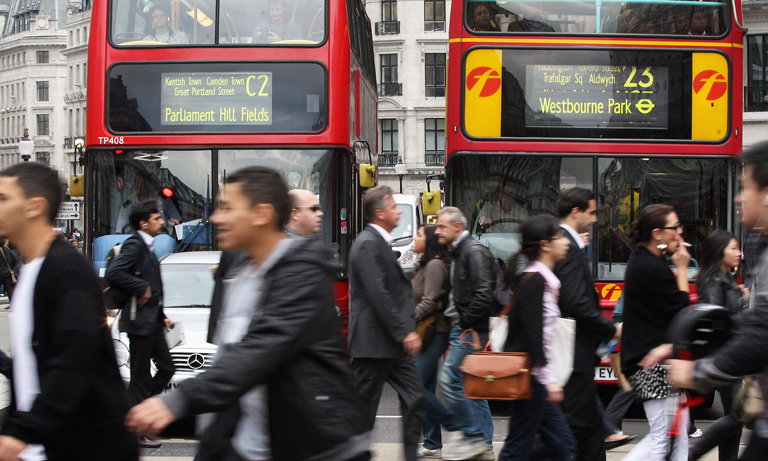 What’s certain is that nothing is going to stand still, unless it’s the queue of cars in front of you!
What’s certain is that nothing is going to stand still, unless it’s the queue of cars in front of you!The cost to rent in bustling Beijing has left countless workers with no choice but to commute, spending six hours or more travelling on a daily basis.
The problem with property prices
A report published by the Global Cities Business Alliance in 2016 claims the average rental costs in China’s capital are 1.2 times greater than the average salaries, making Beijing the world’s costliest city to live in.
It’s not just renters who are affected, however, as purchase costs also saw a steep increase of 28% in a 12 month period, by September 2016.
As a result, many thousands of younger, white-collar workers are residing in towns further afield from the capital and spending up to nine gruelling hours travelling to their jobs each day.
In attempts to reduce extreme traffic congestion and speed up travel time, many are ditching cars in favour of crammed buses or even hand-pulled ferries.
The situation has become so commonplace that towns outside of Beijing, where living is more affordable, such as Yanjiao, Guan and Hebei, have earned themselves the nickname of ‘sleeper’ cities.
Those living in Beijing itself spend around 52 minutes on their commute to work, as estimated by a Chinese government report from 2013. Those in the so-called sleeper cities can spend up to 9 hours.
The growing number of workers living in Yanjiao has transformed it from a population of 30,000 to a city of nearly a million individuals. Far from the quiet town it once was, Yangiano is now a lively hub where the bus terminals are concerned.
Workers queue for buses before dawn and are prepped for the day by the street vendors, then each evening thousands disembark in the dusk to make their way home, where predominantly unlicensed taxis pick up countless fares.
One commuter’s case
Even with a good career as a marketing manager, one commuter has claimed she cannot afford the high rental costs to live in Beijing where she’s employed, and instead spends much of her day commuting from Yanjiao, where she lives in a high rise property.
She uses the travel time to do online courses and read lectures, rather than feel as though the time is wasted.
The costly consequences
There are, however, various potential downsides to such lengthy commutes, from lack of sleep and adequate rest, to costly travel expenses, depression, neck and joint pain, weight gain and high blood pressure and cholesterol levels.
In tandem with less time spent at home and more on the roads, or rivers as the case may be, personal lives can be negatively impacted, adding to stress and putting pressure on relationships and marriages.
This worrying trend has become the norm and looks set to continue, as there is estimated to be over 1 billion people living in cities in China by 2030, which will account for up to 70% of the population.
The disproportionate living and rental costs compared to wages is a stark reflection of modern day life and the harsh reality of large cities, where the opportunities for employment are greater.
Recruiters love this COMPLETE set of Accredited Recruitment & HR Training – View Training Brochure








